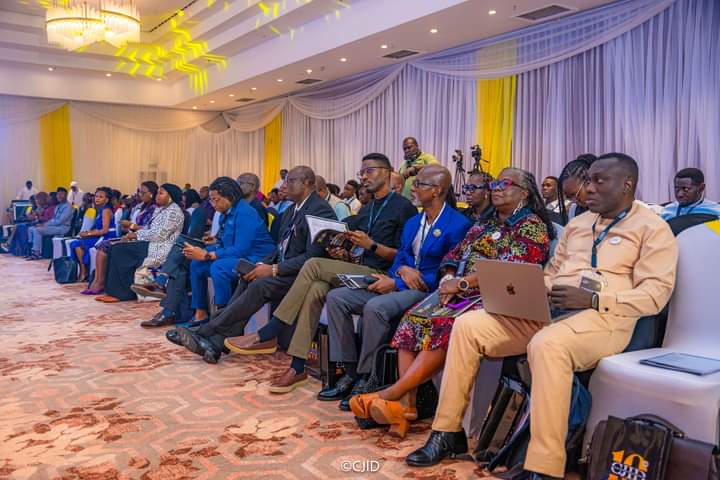By Philip Tengzu, GNA Special Correspondent, Abuja
Abuja, Nigeria, Nov. 27, GNA – Panelists at the ongoing Media and Development Conference (MDC24) in Abuja, Nigeria, has described the outcome of the 29th Conference of Parties to the United Nations Framework Convention on Climate Change (UNFCCC) (COP29) as a missed opportunity for Africa to make its demands for climate justice.
It said COP29 should have been a turning point for Africa’s climate financing efforts but “instead it became a missed opportunity.”
“The $300 billion public finance goal is just a drop in the ocean compared to that of $1.3 trillion that we required to address the needs of the climate vulnerable communities globally,” Ms. Cynthia N. Moyo, the Climate and Energy Campaigner at Greenpeace Africa, South Africa.
She said this during a panel discussion on the topic “COP29 and the Way Forward for Africa”.
She indicated that the $300 billion climate financing offered at the just-ended COP29 in Azerbaijan was “really not climate justice, it’s exploitation, it’s climate colonialism.”
The Centre for Journalism Innovation and Development (CJID) organised the conference in partnership with the USAID, Google News Initiative, Friedrich Ebert Stiftung, National Endowment for Democracy and Open Society Foundations among others
The three-day conference also featured “AI and Media Summit” to discuss, among other things, the impact of Artificial Intelligence (AI) on the future of media and democracy.
The Paris Agreement had promised $100 billion annually to address climate change issues in Africa but the Global North offered $300 billion from now to 2035, which came as a disappointment to many countries that were parties to the Convention.
Africa contributed less than 4 per cent of the global emissions to the climate crisis, but faced the most devastating consequences, from extreme droughts to catastrophic floods.

The climate change campaigner indicated that the media had a critical role in the climate change discourse and negotiations by ensuring that climate crisis stories reflected the lived experiences of people in the communities.
“As communicators it is very important for you to connect these global finance discussions to the experiences of people in our communities who really bear the brunt of climate change.” Ms. Moyo explained.
She stated that stories of frontline communities navigating climate change, and the crisis had the ability to influence public opinion and behaviours and shape policy decisions.
Ms. Moyo, therefore, said it was important for the media to leverage storytelling, to advocate policy reforms, promote climate and environmental justice and hold decision makers accountable to climate change issues.
Mr. Chinedu Onyegbula, Energy Specialist at the African Development Bank, Nigeria, suggested the need for Africa to present its best negotiators at the climate negotiation tables to negotiate for the best outcome for Africa.
He also stressed the need for less developed and developing countries to go to the negotiation table with a coordinated voice and a plan of action rather than going there “cups in hand,” anticipating what the offer would be for them from the developed nations.
“So we must come to a common general level playing field, understand what our problems and issues are, what are the implications of our problems and issues, so that when we approach these global bodies, we are coming there with our own solutions, we are coming there with our own demands, and our demands are met, otherwise we walk out,” Mr. Onyegbula indicated.
Mr. Sambou Kinteh, UNFCCC Focal Point, Ministry of Environment, Climate Change and Natural Resources, The Gambia, indicated that COP29 had provided financing for the Action for Climate Empowerment (ACE).
He, therefore, encouraged the media to take advantage of that financing through their state governments to engage in climate change education and sensitisation including community engagements.
ACE is a term adopted by the UNFCCC under Article 6 of the Convention to empower all members of society to engage in climate action, through climate change education and public awareness, training and public access to information, among others.
GNA